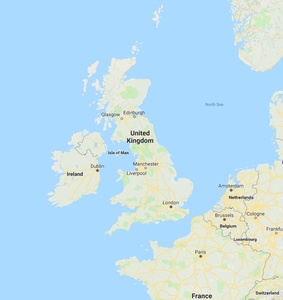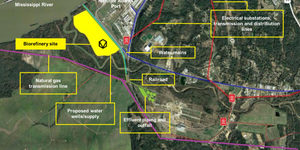UK publishes biomass policy statement
Energy Disrupter
ADVERTISEMENT
The U.K. government on Nov. 4 published a policy statement that provides an early indication of priorities and intentions for biomass use ahead of the planned publication of a full biomass strategy in 2022.
According to the U.K. Department of Business, Energy and Industrial Strategy, the policy statement contains principles that will inform future biomass use across the U.K. economy and provides a view on the role of biomass in sectors, such as power, heat, transport and industry, and as part of bioenergy with carbon capture and storage (BECCS).
In the 45-page document, the U.K. government provides a strategic review of the role of biomass across the economy in the medium- to long-term and sets out principles established for a biomass priority use framework that aims to help the country achieve its net-zero goals. Those key principles include compliance with sustainability criteria and waste hierarchy principles; contribution to carbon budgets and net zero considering feedstock availability; lifecycle greenhouse gas emissions and cost-benefits; and biomass to be used carbon capture utilization or storage where feasible, and otherwise used only in hard-to-decarbonize sectors with limited or now low-carbon alternatives.
“We expect biomass use to be prioritized according to these principles, in areas, such as sustainable aviation fuel and hydrogen production helping to decarbonize greenhouse gas (GHG) intensive sectors such as aviation and industry, and as a fossil fuel replacement to make valuable products from materials further down the waste hierarchy and provide a circular economy benefit,” the government wrote in the document. “Over time, as the technology develops, we expect biomass use to also be focused in applications that can deliver negative emissions through bioenergy with carbon capture and storage (BECCS), while also supporting energy security.”
Drax Group plc has issued a response to the government’s biomass policy statement. “Urgent action has to be taken to address the climate crisis and we are pleased the U.K. government is demonstrating climate leadership in its ambitions to deliver policies which will attract the private sector investment needed for more green technologies to be deployed, including bioenergy with carbon capture and storage (BECCS),” said Will Gardiner, CEO of Drax.
“With the right business model from the government, Drax is ready to invest £2bn in BECCS and could deliver the world’s largest carbon capture project here in the U.K., permanently removing 8 million of tonnes of CO2 from the atmosphere each year by 2030,” he continued. “With sustainable biomass and BECCS we can kickstart a whole new sector of the economy, creating and supporting tens of thousands of jobs in the North, as well as stimulating an export market and supporting the U.K.’s net zero target.
“We look forward to working with the government to ensure the most sustainable biomass feedstocks are used in our BECCS project.”
The U.K. Association for Renewable Energy and Clean Technology (REA) also issued a statement welcoming the government’s biomass policy statement. “The REA firmly welcomes the government’s reasserted policy commitment to the use of biomass in the U.K., recognizing the critical role bioenergy plays in delivering the 1.5⁰C Paris Agreement and the U.K.’s own Net Zero targets,” said Nina Skorupska, CEO of the REA. “Releasing this Policy Statement on COP26 Energy Day sends a clear signal that the U.K. remains committed to ensuring that biomass is done right, in line with existing stringent sustainability governance arrangements, both at home and internationally.
“The REA look forward to ongoing engagement with Government to finalize the Biomass Strategy next year, helping to inform a vision for the continuous sustainable use of biomass,” she continued. “In doing so, we also reiterate the importance of building on the success of existing bioenergy sectors, where immediate carbon savings are already being realized across power, heat and transport.
“The implementation of the Biomass Strategy will involve building upon a sector that already provides over 50,000 jobs in the U.K.,” Skorupska added. “As such, the strategy will need to not only set out an ambition, but ensure it maintains the skills, experience and supply chains already in place. This must be factored in when considering how biomass resources are best used by the U.K. to remain aligned with the climate commitments being made in Glasgow at COP26.”
A full copy of the biomass policy statement can be downloaded from the BEIS website.
















